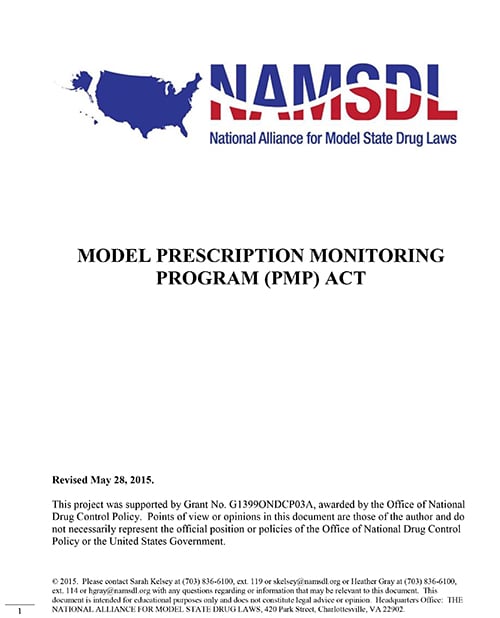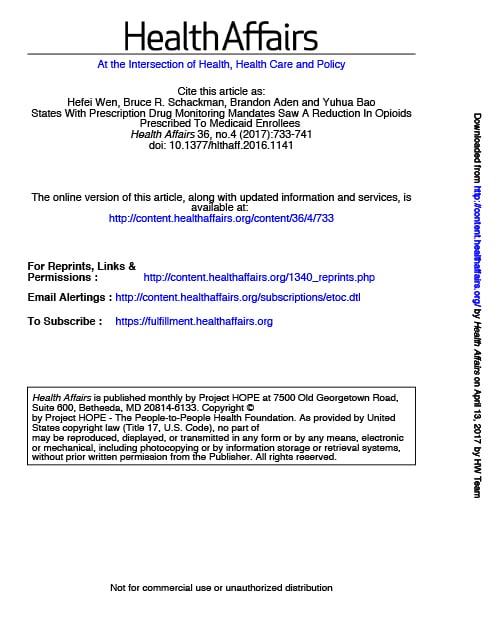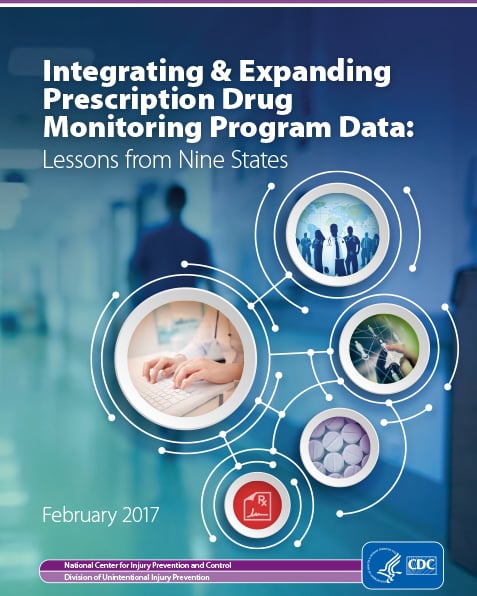ACEP ID:
- My Account
- My CME
- Sign Out
ACEP ID:
Federal law does not impose restrictions on the duration of supply/pill count for controlled substances. However, many states have enacted legislation limiting prescriptions for these substances, and legislation is rapidly evolving concerning these restrictions. 18 states currently have laws restricting opioid prescriptions.
See Table 1 for complete information regarding state-by-state opioid prescribing laws.
ACEP recognizes the important role that PDMPs play identifying patients at risk of opioid abuse and "doctor shopping." ACEP supports effective, interoperable and voluntary state prescription drug monitoring programs (PDMPs) that push prescription data to emergency department providers, rather than requiring them to separately sign into and pull the data from the PDMP.
As states enact provider PDMP use mandates, exceptions should be in place to ensure that patient care is not delayed or compromised by these mandates. Accessing the PDMP can be time consuming and onerous; every minute a physician spends accessing the PDMP is a minute they are not focused on patient care.
Exceptions to access the PDMP should apply in the following instances:
(i) patients undergoing cancer, hospice or palliative care
(ii) terminally ill patients
(iii) patients receiving care in an inpatient or observation setting
(iv) care at the scene of an emergency or in an ambulance
(v) nonrefillable prescription less than 7 days
(vi) the PDMP is not operational secondary to a technological or electrical failure or natural disaster.
The National Alliance for Model State Drug Laws is a non-profit organization funded by congressional appropriations. It is the successor the The President’s Commission on Model State Drug Laws, and in coordination with the Office of National Drug Control Policy, drafts model drug and alcohol laws, policies and regulations.
They have provided the following model PDMP legislation which can be used as a blueprint for states' PDMP laws.

The following article from Health Affairs shows the effect of PDMPs on opioid prescribing. It concludes that mandates to access the PDMP prior to prescribing a controlled substance for each patient does not result in better outcomes than merely mandating that physicians have an account enabling to access the PDMP as they see indicated.

Effect of PDMP on Prescriptions
ACEP supports supports effective, interoperable and voluntary state prescription drug monitoring programs (PDMPs) that push prescription data to emergency department providers, rather than requiring them to separately sign into and pull the data from the PDMP.
The Substance Abuse and Mental Health Services Administration (SAMHSA) funded projects in nine states from fiscal years 2012 to 2016 through its PDMP Electronic Health Records (EHRs) Integration and Interoperability Expansion (PEHRIIE) program. The project states were: Florida, Illinois, Indiana, Kansas, Maine, Ohio, Texas, Washington State, and West Virginia.
This project aimed to increase the integration of the PDMP into the EHR, and improve interstate PDMP data exchange. This report summarizes (1) state-specific accomplishments related to integration and interstate data sharing and (2) design and implementation lessons learned across the nine states.
Integration of the PDMP into the EHR resulted in substantial benefits. For example, after Washington's PDMP became interoperable with a statewide health information exchange and the Emergency Department Information Exchange (EDIE), solicited reports to prescribers increased more than 80-fold, from 26,546 to 2,222,446 in one year.
The lessons learned from this project can be used to create successful PDMP integration and in interstate exchange across the country.

Integrating and Expanding PDMPs, Lessons from 9 States
The data collection interval varies by state, and there is a time lag before the prescription appears on the PDMP. Daily reporting has increased from 15 states in 2014 to 20 states in 2015. In 30 states, patients have the right to view their own PDMP record. Some states allow pharmacists and other licensed health care professionals as delegates to check the PDMP for the physician.